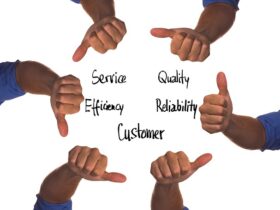The core of any successful business is a commitment not just to doing what brings in profit, but to doing what’s right for people, communities, and the world. Regulatory compliance is the foundation upon which companies ought to be ethical, responsible, and respectful toward rules that also protect the business and whom it serves. Navigating regulatory compliance is not only about the rule of law, but rather it is about making choices reflective of integrity and trust.
Compliance with regulation sometimes feels like a balancing act of those tightrope walks between striving for business objectives and rigid rules and regulations. In truth, compliance is more than marking items off a checklist; when companies approach it as a moral decision, it is a pledge to honesty, transparency, and respect in each decision.
Why Regulatory Compliance Matters
Regulatory compliance allows this moral direction to businesses for responsible practices that would protect the organization and the stakeholders. The existence of regulations means something: they keep companies straight in acting ethically, protect consumer rights, protect the environment, and ensure fair competition. Compliance isn’t a barrier; it’s a bridge to long-term success.
In my experience, compliance truly embraced as a business a culture of respect and accountability. I once worked for a small company that saw compliance as a necessary evil-one of those annoying things that had to be checked off but not celebrated. But then we started digging in, and compliance became representative of a value system where an avenue to building trust was laid with our clients and the community.
Grasping Regulatory Compliance Fundamentals
Compliance can be mind-boggling, given the number one has to adhere to. Breaking down the core components can make it a little more understandable, which would, in turn, make it easier to do.
| Component | Description |
|---|---|
| Legal Compliance | Adhering to all applicable laws, such as labor laws, environmental laws, and consumer protection. |
| Industry Standards | Meeting the ethical and operational standards set by the industry, often through certifications. |
| Data Protection | Protecting customer and business data, including adherence to data privacy laws like GDPR or CCPA. |
| Financial Regulations | Following financial reporting requirements to ensure transparency and accountability. |
| Health & Safety | Ensuring a safe work environment for employees and maintaining workplace safety standards. |
Key Steps in the Direction of Compliance Regulatory
The journey of ensuring compliance with regulatory requirements is one of intention, strategy, and continuous improvement. In the direction of taking up this journey, some key steps for businesses to take up the path include:
1. Well-Defined Compliance Program
The Compliance Program is a kind of roadmap that describes how each department can follow the regulatory requirements. This would typically describe policies and procedures, as well as controls to ensure that applicable laws and standards are observed.
Personal Experience: I once had to institute a compliance program at the ground level. The process was long, but it was satisfying. As we put down policies and procedures, it became apparent that compliance wasn’t about rules; it was about creating a culture of respect where everybody knew their place in keeping the company clean.
2. Assign a Compliance Officer or Team
Any compliance program requires one champion or more. The compliance officer updates himself on regulatory changes, trains staff, and enforces policy. This person, or team in some cases, will monitor the practice of compliance and help provide a bridge between the operations and the regulatory requirements of the business.
Example: Our compliance officer in my previous company was not just the enforcer of rules but rather the ethical guide to our team. She explained why such a rule existed, making us realize that compliance was not a hindrance to our endeavor but a loyalty to our values.
3. Perform Periodic Risk Assessments
Understanding where risks may potentially lie helps when prioritizing efforts toward compliance. Regular risk assessment enables a company to identify more areas of vulnerability to regulatory breaches and enables it to change practices to avoid such regulatory breaches. 4. Train and Educate Employees
If compliance is going to be the DNA of a corporation, then everyone has to know their role, be the result of training sessions and ongoing education in new regulations, and understand how they apply to everyday functions. Make sure you include interactive training with realistic scenarios that make compliance not only more interesting but less daunting. When employees know why they follow a certain practice, they will most likely follow through.
5. Reporting and Monitoring System
There cannot be any compliance program without reporting and monitoring its progress and functions. A reporting system can allow employees to report all compliance concerns or any breaches anonymously so that there will be transparency and accountability.
The Role of Ethics in Regulatory Compliance
Compliance and ethics go hand in glove. While laws enforce minimum standards, ethical practice goes a step beyond; it guides companies to act in ways that indicate integrity and humanity. Ethical compliance for business means not merely meeting the bare minimum but striving for what will be in the best interest of customers, employees, and society.
Example: Consider the GDPR and other similar data privacy regulations. While compliance makes sure the law protects the data, ethical conduct will ensure a business treats customer data with the utmost respect and confidentiality, even when nobody is watching.
Having worked with a client in the healthcare industry, regulations around privacy were certainly strict. But even beyond that, standards met an attitude of genuine caring toward patient data from the team. This turned compliance, in a sense, into something to be proud of and connected to with the patients.
Overcoming Common Compliance Challenges
Compliance is not easy to navigate, and each organization has different problems to deal with. Some common challenges organizations face along with solutions to help them overcome these challenges are described below.
| Keeping Up with Changing Regulations | Regularly update compliance policies and assign a dedicated team to monitor regulatory changes. |
| High Costs of Compliance | Invest in training and automated compliance tools that simplify the process and reduce long-term costs. |
| Employee Buy-In | Educate employees on the importance of compliance, using examples and real-world implications. |
| Complexity of Regulations | Break down complex regulations into understandable guidelines, and use plain language in policies. |
| Fear of Reporting | Ensure employees can report issues anonymously to foster a culture of honesty and transparency. |
Benefits of a Strong Compliance Culture
A strong culture of compliance is more than just regulatory peace of mind. It helps in building trust, establishing a good reputation, and laying the foundation for ethical behavior.
Improved Customer Loyalty: Knowing full well that the company respects their rights and safety, customers will definitely be more loyal to the company. Improved Employee Morale: Employees are proud to work in a company that upholds ethics and respects rules and regulations. Legal Risks: By being more proactive towards compliance, one minimizes their risk from costly fines or any legal action against them. Positive Brand Image: Companies admired for integrity and transparency attract loyal customers and business partners.
Long-term success is about overcoming challenges through compliant and ethical means to bring continuity to one’s legacy.
Personal Story: A Lesson in Compliance and Integrity
I remember, early in my career, I went through one experience where the importance of compliance and ethics cropped up. It was part of a project in which some shortcutting was going to be involved, to save on time, which also meant that the bending of rules slightly could also be allowed. Some said “No one would notice, ” yet I couldn’t get around how wrong it was. I chose to report my concerns, and while it was a difficult decision, the leadership team called to thank me for speaking up. They reminded me that our business reputation was based upon the trust of our clients and even the small choices counted.
That experience taught me that compliance isn’t about looking good on paper; it’s about doing what is right every single day. It is in times of doubt that a strong compliance culture acts like a compass to show our direction toward integrity and respect.
Building a Compliance-First Mindset
Building a culture that embeds compliance into the fabric of everyday business takes time and commitment. Following are some practical steps to help foster a compliance-first mindset:
Set the example: Leaders should be at the forefront in making sure that ethical behavior and compliance are top of mind. Also, communicate openly that compliance and ethics are everyone’s concern and responsibility. Relate compliance to employees’, customers’, and business outcomes by using real-life examples. Celebrate Compliance Success: Recognize and reward employees who support compliance standards to help reinforce a culture of integrity.
Be proactive: Compliance policies need periodic reviews for updates that will keep the company ready to address new changes and challenges.
Conclusion: Compliance as an Integrity Journey
Regulatory compliance is not merely about following some rules but also about building a legacy in the realm of trust, respect, and responsibility. When a business commits to ethical practice, it builds a foundation that not only withstands challenges but also strengthens over time. Compliance will be one of those mutual values that reflects the integrity of each person within the organization.
Compliance is a journey, never easy but always worth it in an ever-evolving world of regulations. It is in each of those business decisions to stay the course with integrity that a foundation of trust from those they serve and the dedication from those who chose to lead them with respect begins to build for a brighter future.

































You are a very smart person!
Perfectly written written content, Really enjoyed examining.
I’ve recently started a website, the information you provide on this website has helped me tremendously. Thank you for all of your time & work.